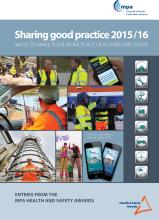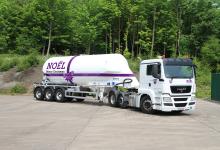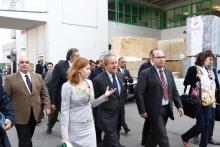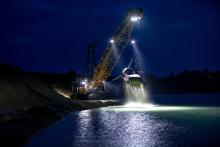SAPICO2 (Sustainable Aggregate Production with Imbibed CO2) is a collaborative project being carried out under the European cross-border cooperation programme INTERREG IVA France (Channel) – England, co-funded by the European Regional Development Forum.
The project partnership comprises the University of Greenwich and its spin-out production company Carbon8 at Chatham Maritime, England, together with the Université de Picardie Jules Verne at Amiens, France.
The project involves combining waste gaseous CO2 with solid combustion residues to rapidly form carbonate-cemented materials for use as aggregate in concrete block manufacture and in other applications in the construction industry.
Closing the process loop in this way enables both a reduction of waste sent to landfill and a lowering of CO2 emissions from small and intermediate-scale industrial operations, with the further benefit of adding value to waste materials.
SAPICO2 will lay the foundations for the commercialisation of this exciting technology on both sides of the Channel, and for future developments via a cross-border carbon technology innovation hub.
The main project objectives are to identify readily available and carbonatable waste streams in the UK and France and to produce and performance-test trial quantities of building materials created by the carbonation of waste streams, both in the laboratory and on site, in order to assess fitness for purpose and to establish ‘end of waste’ criteria.
Other objectives include evaluating the opportunities and barriers for the manufacture of bricks and blocks containing carbonated waste materials as aggregates and to engage UK and French stakeholders on the benefits of accelerated carbonation technology.
For further information or if you wish to send a sample of combustion residue for evaluation, contact Alan Maries (%$Linker:









